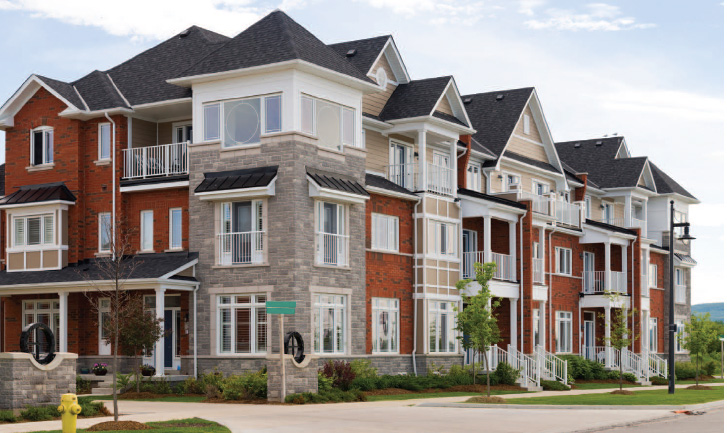Welcome to the Neighborhood
What You Should Know About HOAs and Neighborhood Associations

When it comes to neighborhoods, Atlanta offers everything from
older, tree-lined communities to new subdivisions with the latest perks. And those areas offer just as much variety when it comes to neighborhood and homeowners associations. Whether you’re looking for an area with strict standards for appearance with an eye toward property values, or fewer rules but more personality, metro Atlanta has the right neighborhood for you.Is an HOA Right for You?
A homeowners association (HOA) is a legal entity that is typically responsible for upholding rules governing the appearance of properties. An HOA will often have the right to enforce those rules by issuing fines and even placing liens on properties of noncompliant owners.
“The big advantage is that there’s a standard that’s set for everyone,” says Realtor Josh Jarvis of Jarvis Team Realty. “They also do some other things, like maintain the amenities.” Because of the HOA, these neighborhoods are often able to offer pools, sidewalks, clubhouses or tennis courts.
Cal McShan, vice president of the Atlanta division of Sentry Management, which manages HOAs for 300,000 homes, condominiums and townhomes across the country, notes that an HOA can be crucial to your home’s value in the long run. “In today’s market, having the help of an association, in terms of the services that are provided, is key to the health of the property you’re purchasing,” he says.
“If things are uniformly maintained [by an HOA], you don’t have...one or two sore thumbs” lowering home values, says Sentry Management marketing director Paul Queen.
Of course, one person’s sore thumb can be another’s needed enhancement. Keep in mind that an HOA’s interpretation of standards can differ from yours, and you have to abide by the organization’s rules.
“They can also restrict things that you want to do to the home,” Jarvis says. “For example, you may want to put an outbuilding on your property. You may not be able to, or it might cost more than it would otherwise, because you can’t just go get an aluminum building.”
Another potential drawback is the impact of HOA dues on your purchasing power. While a well-maintained neighborhood can prevent your home’s value from depreciating, what you pay toward an HOA will be considered by banks when you apply for a loan, because your dues affect your debt-to-income ratio.
“If you pay $600 a year, that’s $50 a month,” says Jarvis. “A lot of people don’t think about that.” This can play an especially large role in the purchase of a townhome or condo, or in the purchase of a home priced near the limit of what you can afford.
Do Your Research
If you’re looking for a home in a neighborhood with an HOA, a little due diligence can pay off in the long run.
Ask to see financial reports for any HOA you’re seriously considering. Without adequate funding, amenities can’t be maintained and improvements can’t be made. It’s reasonable to expect that your neighborhood’s pool and other features will be just as attractive in 10 years as they are today.
It’s also a good idea to ask to see the minutes of the past few HOA meetings. These documents can inform you of ongoing problems that can factor into your decision to buy. “What they’re talking about in the minutes gives you a good snapshot of what the issues are in a neighborhood,” says Queen.
Although HOA documents are nobody’s idea of a page-turner, it’s still important to give them a thorough read. If an HOA’s standards differ significantly from yours, it’s better to know before you purchase.
Drive through the neighborhood to be sure that it’s properly maintained. Amenities or homes in poor condition can tell you that an HOA isn’t doing its job.
And if you’re considering a gated community, be aware that everything inside those gates is the responsibility of the neighborhood’s homeowners. If a road inside a gated community needs paving, the association, not the county, is responsible for the cost. “In a gated community, the only things they don’t own are the mailboxes,” says Jarvis.
Neighborhood Associations
If you’re looking for a looser structure than that offered by many homeowners’ associations, a neighborhood association might be the ticket. Found more often in areas close to Atlanta’s downtown than in the suburbs, neighborhood associations frequently act as advocates for a community, working with elected officials on improvements and taking actions to enhance the area’s quality of life.
A neighborhood association is typically less concerned with enforcing standards for appearance and more concerned with issues that affect the community, says Nancy Dorsner of the Lake Claire Neighbors.
“Really, it’s just having an organization that can represent the neighborhood when things come up like school redistricting,” she says. “It’s a whole lot easier for the association to get face time with elected representatives. Every person in the neighborhood can’t get a meeting with our city council person. We can speak with one voice on neighborhood issues, like recommending that a traffic light should be changed.”
Although the name suggests that it’s an HOA, the 1,200-member Dunwoody Home Owners Association is actually closer to a neighborhood association in function. The Dunwoody HOA covers the entire city of Dunwoody, a DeKalb County suburb with a population of around 46,000. With events including Food Truck Thursdays, a Fourth of July parade and live concerts, “We very much add to the quality of life in our city,” says President Stacey Harris. The group also hosts candidates’ forums for city council and mayoral elections.
The Lake Claire Neighbors group seldom, if ever, tackles issues relating to the appearance of individual homes. “Even though we may have an issue of growing grass too long, we prefer the more flexible and free approach to how our neighborhood evolves,” says Dorsner. “Our neighborhood is laid back. We like the fact that it’s quirky and interesting. We don’t have to have all matching mailboxes,” she adds.
Important Facts
- An HOA is a group of property owners with the authority to enforce rules concerning such issues as yard work, safety and uniformity of appearance.
- A neighborhood association is a group of neighbors and business owners concerned with such issues as quality of life.
- If you move into a community with an HOA, membership is generally mandatory.
- Most condominium communities are HOAs.
- Some HOAs have restrictions about parties, noise, etc.
- HOAs usually own and maintain community property such as roads, tennis courts, etc.
Remember that HOAs and neighborhood associations are different entities that serve different functions, and be aware of what each offers and what you want when you’re investigating a particular community. Good luck!








